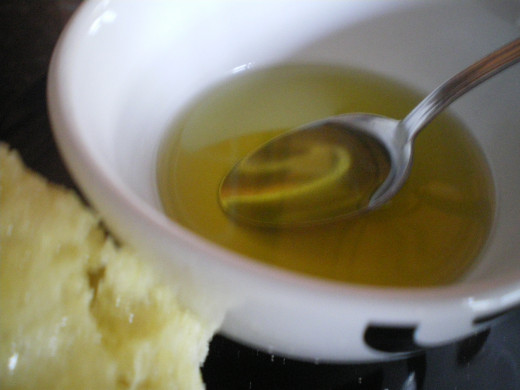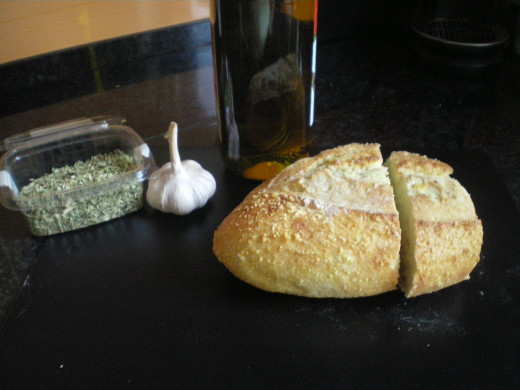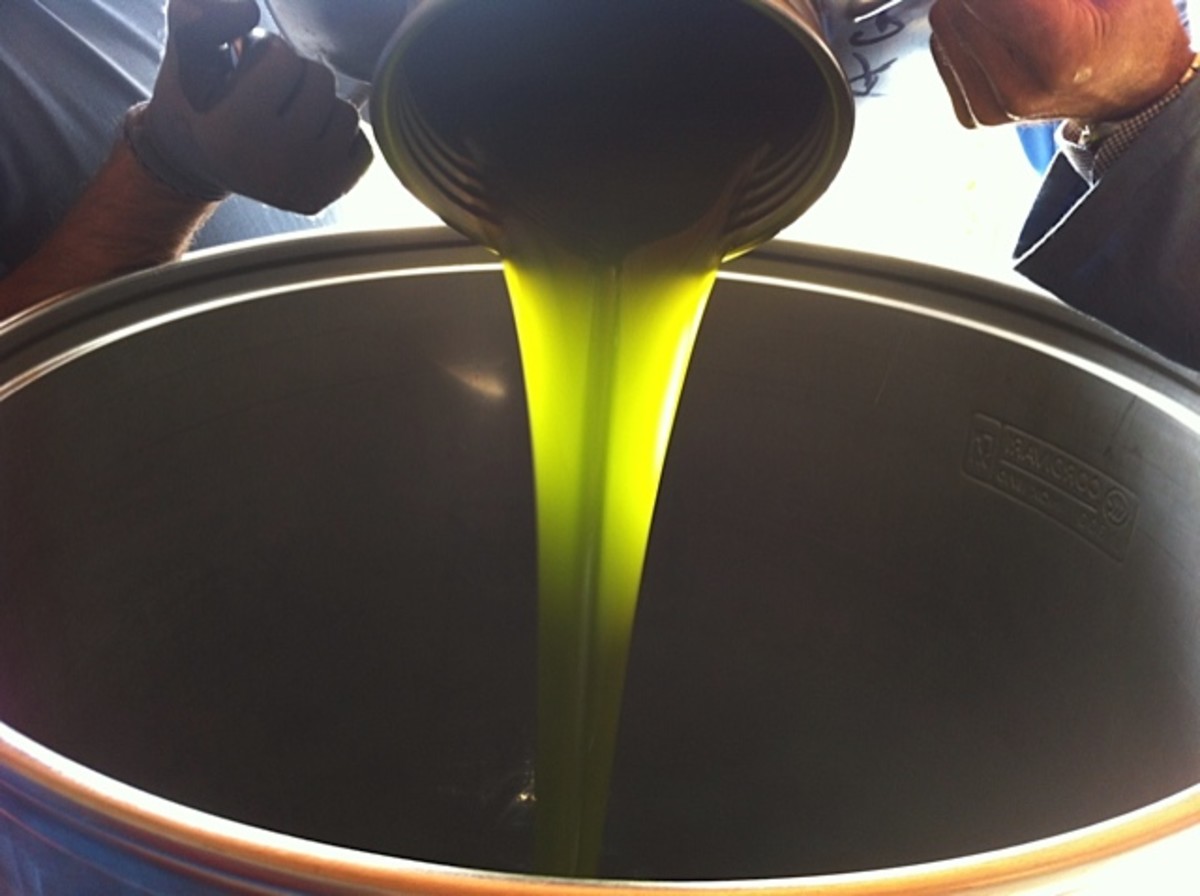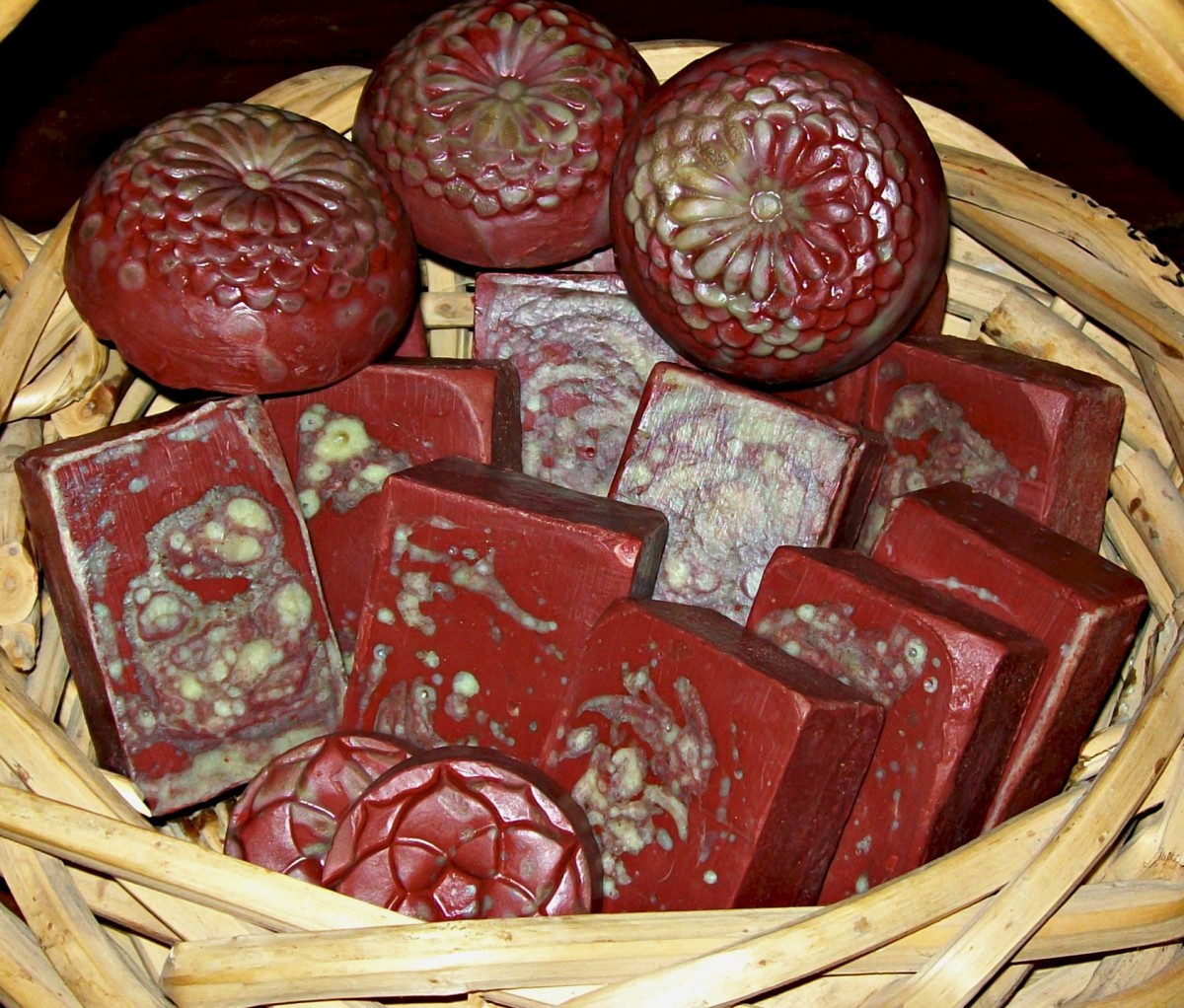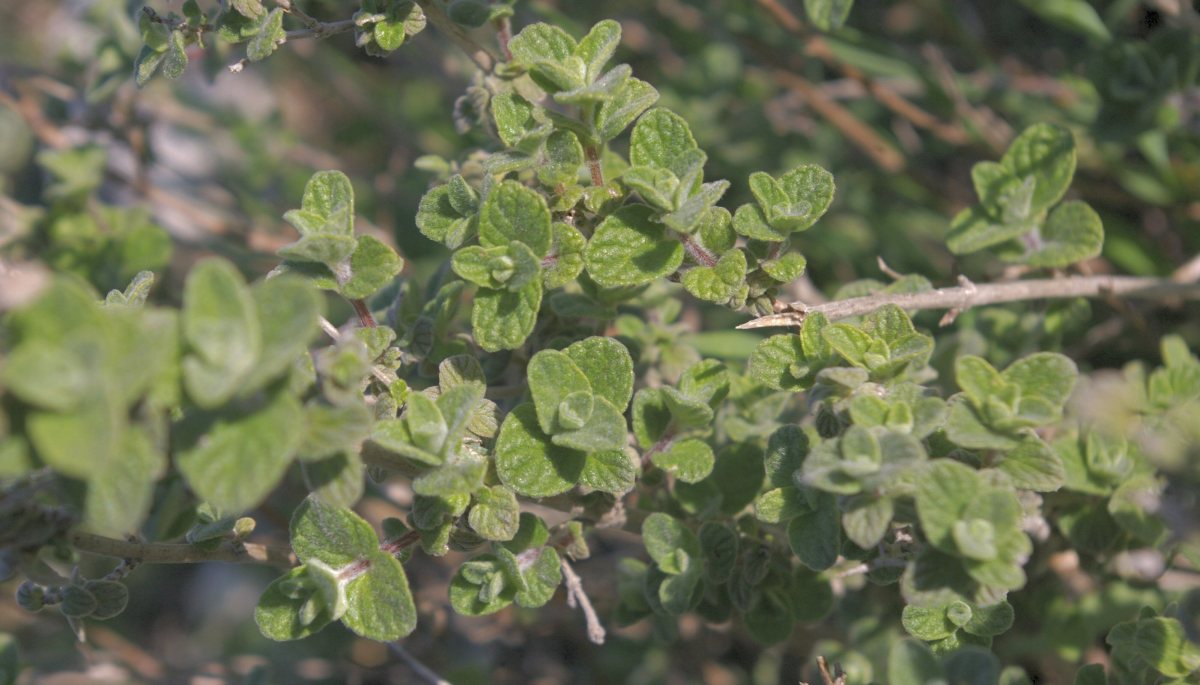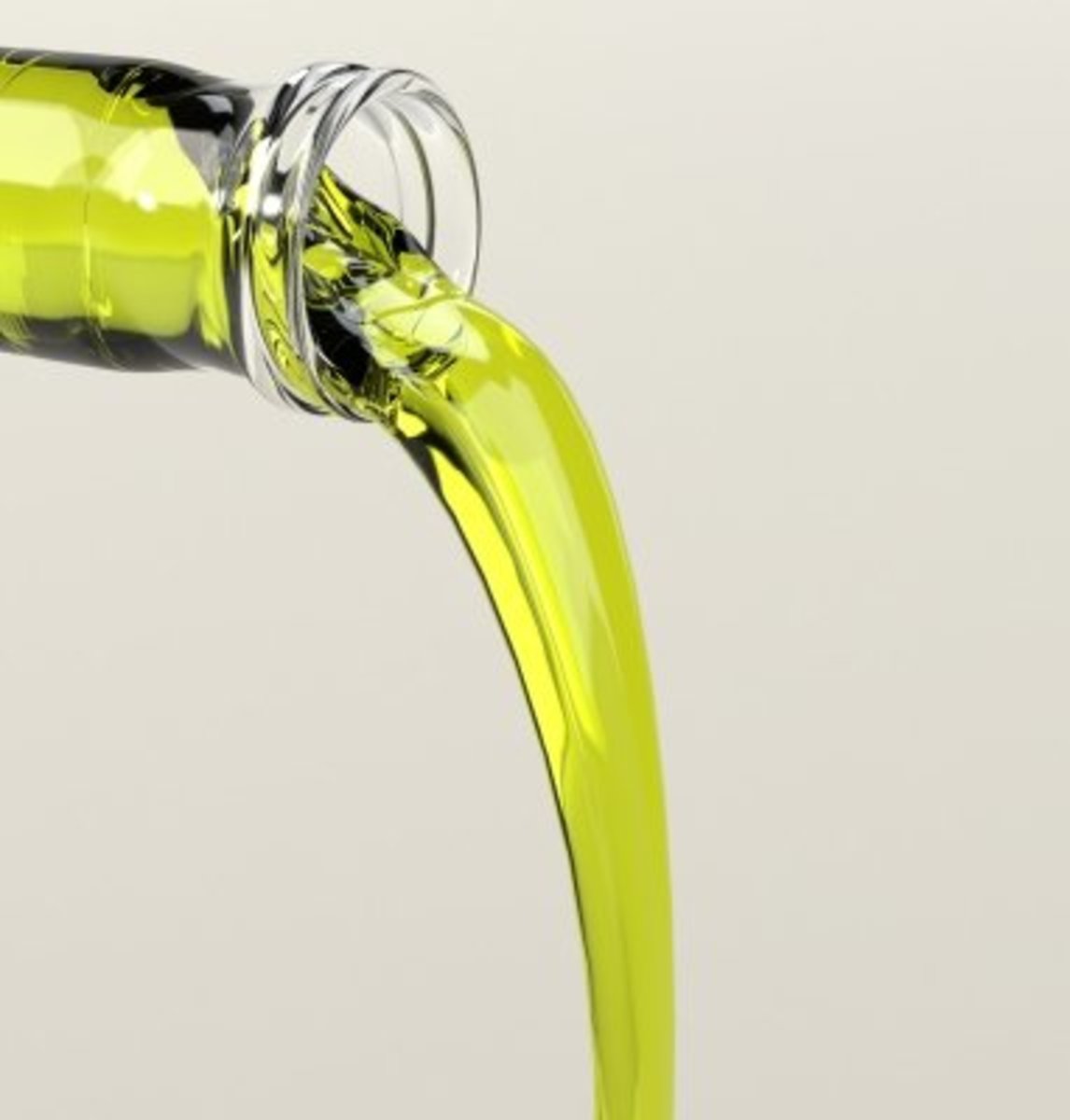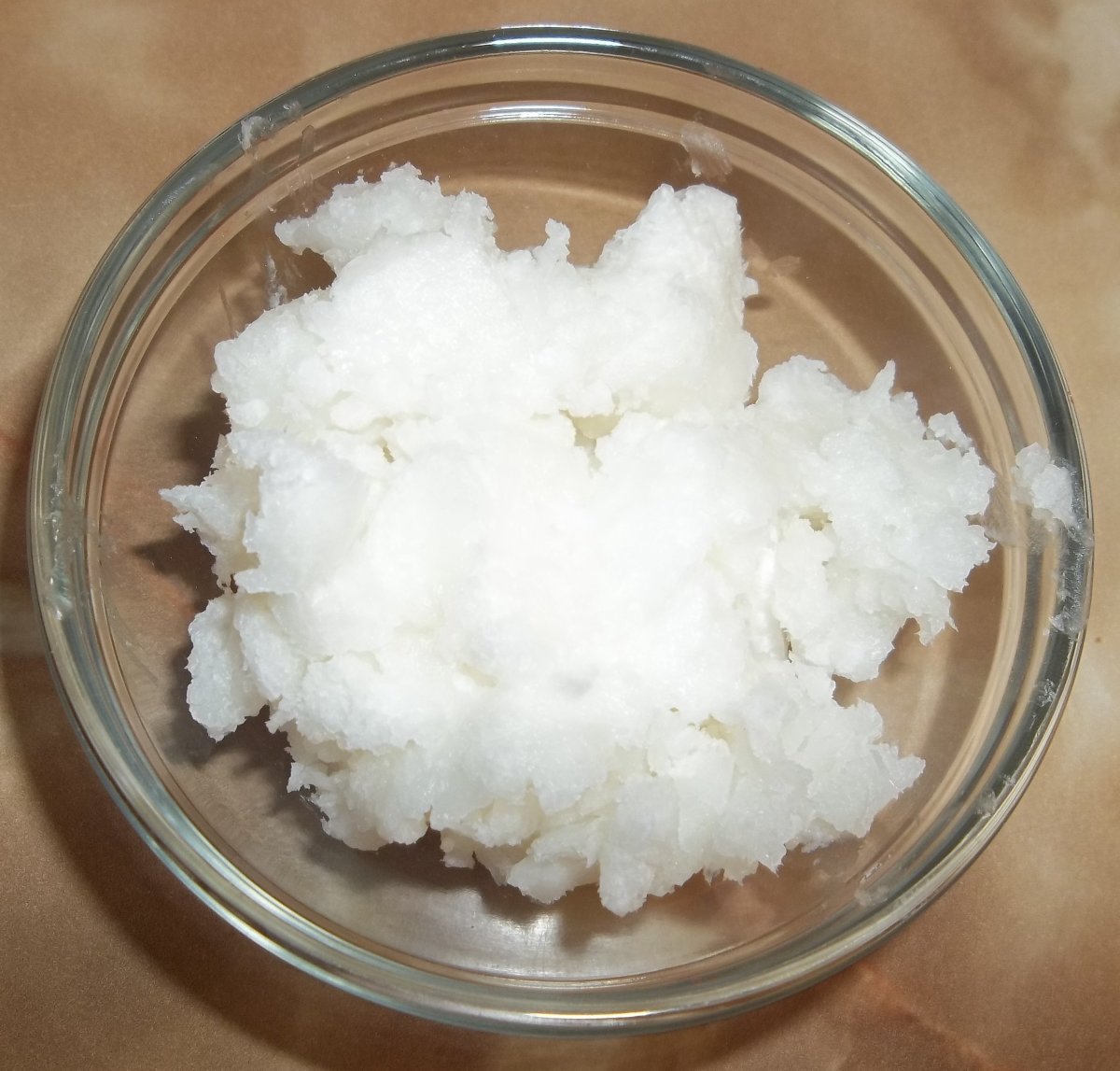Olive oil - Origin, Benefits and recipes
Olive oil
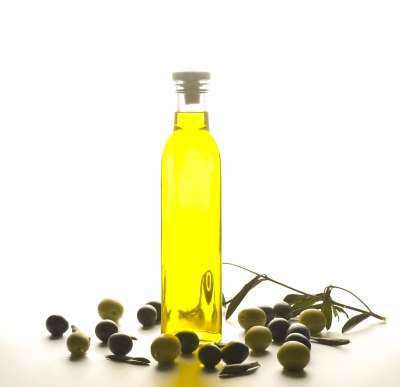
There is something we cannot live without in Europe's most southern countries, especially in the Mediterranean region.... It's not that it is something exclusive from this part of the world, there is plenty of it, for instance, in Tunisia, and actually from day to day a bit all over the world the use of this product grows... But in the Mediterranean region is particularly something we cannot live without, after all is one of the basics of our eating diet... the mediterranean diet... and it is not only delicious, but also a healthy choice... it is our very own liquid gold, it is Olive Oil.
Although there are olive trees a bit all over the world, mainly 95 % of all olive trees are grown in the Mediterranean region. So, it's safe to say most of global production of olive oil comes from this region, from countries such as Spain, Portugal, Greece and Italy.
Portugal is one of the leading countries in this production, although we can say it's not a fair fight, after all the size of the country does not allow for such big productions, as for instance Spain is capable of, merely by a question of space. Nonetheless, Portugal is one of the leading countries and its Olive Oil is considered by many the best in the world.
Even though size is definitely an issue in this case, Portugal's production has been growing for the past few years, maybe because many think that the portuguese is one of the best olive oil in the world, as well as the exports of olive oil all over the world and one of the olive oil products, with highest success, is the top-quality extra virgin olive oil.
But olive oil is much more than countries, markets and exports, olive oil is actually about history, tradition and the diet of a whole region in the world, which would be completely different - and probably much less healthy - without it.
So, what is it about olive oil?
Main olive oil producers
Olive trees
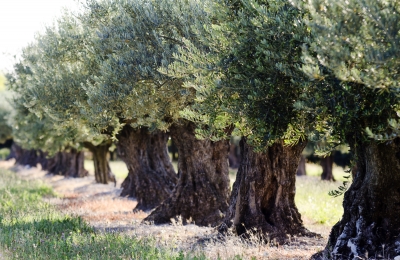
Liquid gold
Olive oil is not something new, it has been around for thousands of years. Its use can be traced in several documents throughout history, including the Holy Bible. Olive oil was produced in Crete or even Canaan. It was even imported by Egyptians. It was not used only for cooking, but for many other purposes, such as soaps that moisturized the skin or fuel for lamps, as well as religious rituals. It is quite the multi-purpose product.
The Mediterranean region, because of the characteristics of its climate, its soil, etc, became the region by excellence to grow olive trees and therefore to take advantage of all that olive trees had to offer.
So, thousands of years ago olive oil was being extracted from olive trees in the Mediterranean region.
Each olive tree produces each year around 20 kgs/44 lbs of olives, considering it is necessary around 6 kgs/13 lbs to produce 1 l/33 oz of olive oil, which means each olive tree can only be responsible for around 3 l/101 oz of olive each year. This means that you really need a lot olive trees, if you really want to have a reasonable production.
Olive oil, as the name says, is the natural fat from olives. To get a high quality olive oil it's important to use exclusively whole, ripe and sane olives. The extraction of the oil is done by physical and mechanical processes. Another important factor is the when, after all the conditions, especially temperature, can affect the quality of the olive oil.
The first step to produce olive oil is, obviously the harvest of the olives. So, when are olives ready for harvest? Olive trees flourish during spring, at the same time olives start forming turning from green to black until the end of Autumn, beginning of Winter, time when olives should be harvested.
Harvesting olives is a tough process, mainly a physical one, there are still a lot of places that employ workers to harvest olives the old fashioned way by hand, which is to put it lightly a tough way, under the rain or the sun, all day long, using poles to shake the olives down from the tree.
Nonetheless there are mechanical processes available now, that allow the vibration of the tree, causing the olives to fall down.
The olives are then carried in open wooden boxes to the mill, where they are sorted according to its kind and condition, namely if they are ripe, sane and others.
Afterwards - and it's important this is done in a period of 24 hours after harvesting - the olives are ground into an olive pomace, which is then heated to extract the olive oil easier.
To actually separate the olive oil from the pomace there are three processes available:
- Pressure (olive press): pressing the pomace to separate the solid from the liquid;
- Decanter centrifugation: the pomace or paste is stirred to combine the small drops of liquid into larger drops, afterwards everything goes into a decanter where water is added to ease the extraction process with the pomage. The decanter will allow the separation between the phases, since the centrifugal force created allows for the olive oil to be separated from the water, since they have different densities, and at the same time the solid parts are pushed into another container;
- Cold dripping (sinolea method): this last one is the most modern method, although it is a slow method. Basically a stainless steel comb is emerged in the pomace, the olive oil drops cling to the steel comb and are then transferred to a bowl. This method is considered to produce higher quality olive oils, since the mechanical and physical processes that obviously alter the final product are here reduced to a minimum.
Olive oil should be stored in a place where temperature ranges from 15º C to 18º C.
Depending on the sort of olives used, its conditions, the extraction method used and other factores, there are different classifications for olive oil, such as extra virgin, virgin, pure or plain olive oil.
The taste of olive oil is also quite different depending on the region where the olive oil comes from, the kind of olive trees, the extraction process, where it is stored, etc, basically much like happens to wine.
Olive
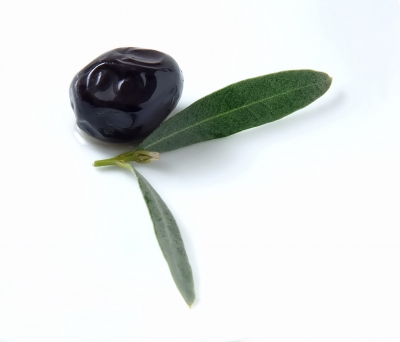
Health benefits of olive oil
Olive oil is a fat, we can't argue there, but this fat is completely different when it comes to our health. Unlike other fats, like vegetable oils or plain butter, it is actually argued by the medical community that olive oil is good for our heart and actually lowers cholesterol. It may seem strange, but it's true. The fact is olive oil hasmonounsaturated fat. Well, monounsaturated fat lowers the risks of coronary disease and helps to lower bad cholesterol.
Other components present in olive oil are, for instance, the famous antioxidants - we all hear about nowadays - such as Hydroxytyrosol, vitamin E, carotenoids, oleic acid. and oleuropein.
In fact the components found in olive oil are said to be responsible for various benefits from using or adding olive oil to ones diet, such as protective or preventive effects in certain malignant tumours, heart disease and cholesterol, helping to keep the correct balance between omega-6 fats and omega-3 fats, lower blood pressure and blood sugar level, at the same time it has demulcent properties, as well as mild laxative properties.
It can also be used directly as a natural medicine, for instance to clean and moisturize skin, to reduce earwax or even as a shaving oil. Olive oil for skin it's already used by many with amazing results.
All in all it is that one thing it can't hurt to add to your diet, on the contrary. And although it may sound strange at first, olive oil can be used to cook anything... If you are using butter or vegetable oil of some kind, just think, why not replace it with olive oil? It's just a matter of getting used to.
Portuguese Olive Oil
Portuguese people always used olive oil for several purposes, at one point the country was self-sufficient as regards the production of olive oil, since then that changed, but it is expect that the country becomes self-sufficient very soon again.
Nonetheless, much of the olive oil production is actually exported mainly to Brazil, Spain, Angola and even the USA.
Portuguese olive oil is considered one of the best in the world and many brands are sold as a gourmet product all over the world. Portuguese brands such as Azeite Gallo or Oliveira da Serra, for instance, are not just worried with the quality of the product, but also other details that make the difference, such as using tainted glass bottles to make sure the product is properly preserved and many other details.
Then you can find special gourmet products, such as extra-virgin olive oil with wild mushroom or chilli pepper.
Producers that have been around for a century or more, that have mastered the production and guaranteed a quality of excellence, are now concerned with image to show how the olive oil they are offering is much more than your regular olive oil.
Again, as I mentioned before, olive oil is much like wine and like wine, in Portugal, the production locations are classified and the olive oil is given the designation of its protection area.
So, Portuguese olive oil is - as far as I'm concerned - the best in the world. To really know it, you need to feel it, to smell it and to taste it just with some bread, to really sense all its parts, the land where the olive tree grew, the flowers that perfumed the olives and the methods that turned the ripe fruit to that liquid gold... Then it's just a matter of personal taste, each olive oil is special, each is different... Each one of us need to find the right olive oil for us...



Just a simple recipe
I won't bother you with long recipes that use olive oil as an ingredient, after all we can use it in basically any dish we cook, just think of replacing your usual cooking fat with olive oil and there you go.
My usual rice recipe is made with olive oil, my seafood rice, my seafood appetizers, my casseroles, my roasts, my stews, my soups, my salad dressings, basically everything I cook has olive oil in it.
So, I'll just leave you with a small suggestion:
Instead of using butter to spread on toast or bread, why not using extra-virgin or virgin olive oil? Make sure you chose one which has a taste to your liking. Don't forget olive oil is much like wine, each has its one different taste and smell and you can chose the one that is really to your liking.
But if you want something more, get the following ingredients together:
- Olive oil;
- Bread;
- Garlic;
- Oregano (optional).
Sprinkle some slices of bread with chopped garlic, olive oil and oregano, if you like. Put it in the oven at a high temperature until it is golden brown and then... enjoy... eat while warm...
And if you like use your imagination and just add other ingredients at taste, maybe a bit of tomato or even olives... the sky is the limit...


What do you cook with?
Feedback
Don’t forget to leave me your comment and vote on the hub.
For more information check out my profile and stop by my other hubs.
And if you enjoyed, may be you can also join us here at Hubpages, it’s fun and free and you can click here.
© Copyright Aug 18 2012 / Algarveview.hubpages.com. To use part or the whole article you must first get written permission from the author. Feel free, nonetheless, to use an intro of the hub with a link to the article here on hubpages for the rest of the article


